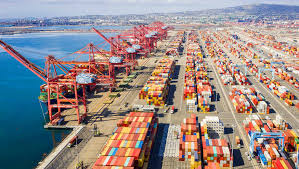Nigeria’s trade landscape within Africa experienced a major shift in Q2 2025, as Togo surpassed South Africa to become the country’s top African trading partner, according to the National Bureau of Statistics (NBS). Nigerian exports to Togo rose dramatically from N134.8 billion in Q1 to N811.97 billion in Q2, with non-crude goods (N698.7 billion) making up the bulk, alongside crude oil exports (N113.3 billion).

Imports from Togo also reached N211.99 billion, representing more than a quarter of Nigeria’s total African imports, underlining Lomé’s role as a key re-export and logistics hub in West Africa.
In contrast, South Africa’s position declined sharply, with Nigerian exports falling by 33% from N708.7 billion in Q1 to N473.65 billion in Q2, largely due to reduced crude oil flows. Imports from South Africa also dropped slightly to N115.15 billion. Other significant developments included Ivory Coast maintaining third place with N408.97 billion in trade, Ghana rising to fourth place with a more balanced mix of crude and non-crude imports, and Mauritius breaking into the top five with N264.98 billion in exclusively non-crude goods. Senegal slipped to sixth, while Cameroon, Equatorial Guinea, and Ghana emerged as new or stronger players in Nigeria’s top 10 trade partners. Angola, previously the top African import source, dropped out of the rankings completely.
Key Takeaways/Potential Benefits to African Trade:
-
West African Trade Hub: Togo’s rise underscores the growing importance of regional logistics and re-export hubs in facilitating intra-African trade.
-
Shift from South Africa: Nigeria’s trade flows are rebalancing toward West African partners, reducing reliance on South Africa.
-
Diversification of Exports: Strong growth in non-crude exports, particularly to Togo and Mauritius, signals progress in expanding beyond oil dependency.
-
Emergence of New Partners: The inclusion of Mauritius and Equatorial Guinea in the top five reflects fresh opportunities with non-traditional African economies.
-
Regional Integration: A more balanced spread of trade across multiple African partners supports deeper economic integration, aligning with the goals of AfCFTA.
-
Strategic Policy Implication: Nigeria could strengthen its role in regional trade by investing in port, logistics, and cross-border infrastructure to capitalize on these shifts.
